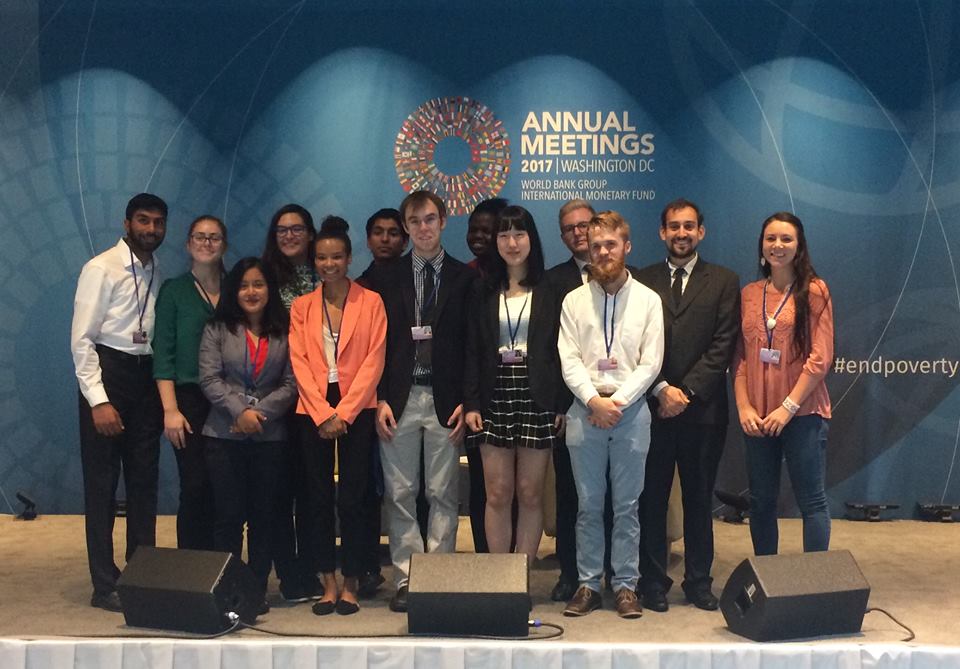Written by Gloria Oladipo, a SustainUS World Bank delegate and Freshman at Cornell University.
For the past 4 days, I have had the amazing opportunity to attend a variety of meetings centering on the activity and functioning of the World Bank, the International Monetary Fund (IMF), and other parties. Those meetings have covered important topics ranging from the World Bank’s involvement in clean (or “cleanish”) technology to the IMF’s plan to reduce global poverty. Another key topic for the week has been discussions around “youth” and, mores, the idea of creating a better future for youth to live in. Given the number of emerging and current global crises — climate change, gender inequality, Trump — many talks surrounded this key question:
Will youth fare well in the future and how do the adults of the present increase the chances that they do?
Interestingly enough, in those talks around the future of the youth, actual “youth” were seldom featured in presentations or as panelists. In fact, young people were barely in attendance as audience members. For example, in the IMF’s “Youth Dialogue: A World Without Work?” not a single presenter was below the age of 20 or even 30. For the “New Economy Forum: Future of Work”, a conversation around what the future of employment would look like, again, the youthful perspective was not present.
The value of youth is already known when it comes to discussing the problems of today and the solutions of tomorrow. For one, the issues of today — poverty, climate change, gender inequality — will be the burden of the youth to sea with and subsequently solve. Additionally, int he face of these problems, younger generations are the ones carving out new solutions — whether that be through a renewed investment and understanding of technology or through innovative ways to make politics more accessible. New solutions are being visualized in ways that older generations haven’t been able to before.
Now knowing the importance of youth, why is it that conversations concerning us always seem to be void of our presence? When I speak about the “youthful perspective”, I don’t mean an older person who can spit statistics on our age group, but a young person, living through and consciously dealing with the anxiety of having to inherit a broken world. I ask the question —
Where is the youth?
— not as a way of pointing out the negligence youth are displaying towards issues that affect us, but as a way of acknowledging the various spaces where we are often crowded out, not included, and not heard — especially in conversations that are about us and should be for us.


